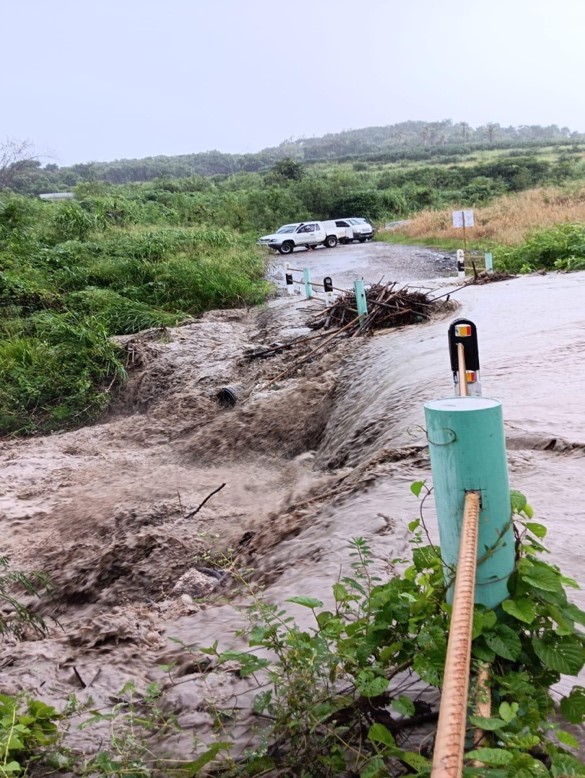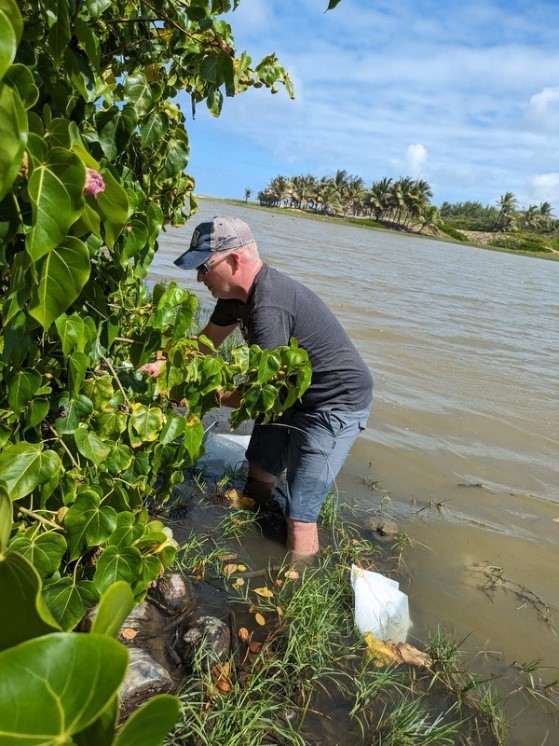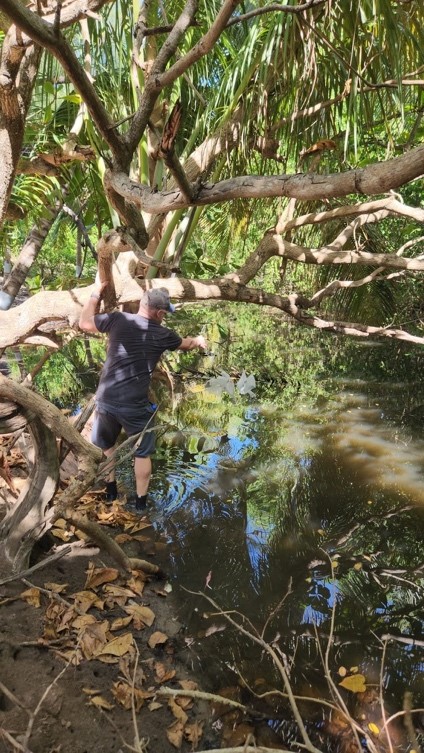In this blogpost, Prof. Mirco Bundschuh and his colleagues talk about their pilot study of investigating leaf-litter decomposition in mangrove forests in Barbados.
Background
Mangroves are considered as a significant sink of carbon and harbor a high biodiversity. These are just a few of their characteristics that make them incredibly valuable to the environment and humans. With the aim to better understand the carbon cycling, more specifically the leaf decomposition, in these systems, Mirco Bundschuh took the opportunity to collaborate with Dr Erin Bennett at Trent University and his colleague Prof. Dr. Chris Metcalfe who jointly organized a field course in Barbados. They invited the idea to study leaf decomposition at a mangrove restoration site located in Walkers reserve in the North-East of Barbados in collaboration with the non-profit organization Walkers Institute for Regenerative Research, Education and Design (WIRRED) and the University of the West Indies. A pilot study was initiated in October 2023 and a follow-up study was launched in mid-March 2024.

Methods and Experience
We had less than a week to get things set. While Bundschuh brought leaf bags and other material for this study, leaves still needed to be picked and dried, weighted in the leaf bags and brought back to Walker’s reserve for deployment. Moreover, the remaining samples from the pilot study needed to be collected and processed. Spoiler upfront: the pilot study suffered from intense flooding which prohibited sampling in most cases (Figure 1). Setting up the follow-up study involved not only multiple steps but also the support of multiple people, at Walkers Georgina Thornton and Ameila Rouse supported us in picking leaves and for the deployment of leaf bags (Figure 2). Drying would not have been possible without the open doors and the supportive staff at Bellairs, a McGill University research station. Weighting and packing were supported Leah Garner-Oneale and Karl Payne at the University of West Indies. As one sees logistics are complicated and made us drive roughly 350 km over this week on an island being 40-times smaller than the federal state of Rhineland-Palatinate.


We are planning to sample leaf bags at each of the four sites along the mangrove stands every two weeks until Mid-May. This sampling will again be supported by our colleagues on-site. Dr Bennett is planning to get back to Barbados to generate some data which should give us leads for our future efforts.
Experience
It was a wonderful experience with the many and fruitful collaborations and open doors to make the efforts possible at first. We are very much looking forward to the data and hope the efforts pay finally academically back.
The EcotoxBlog will keep you updated about the project’s progress.
